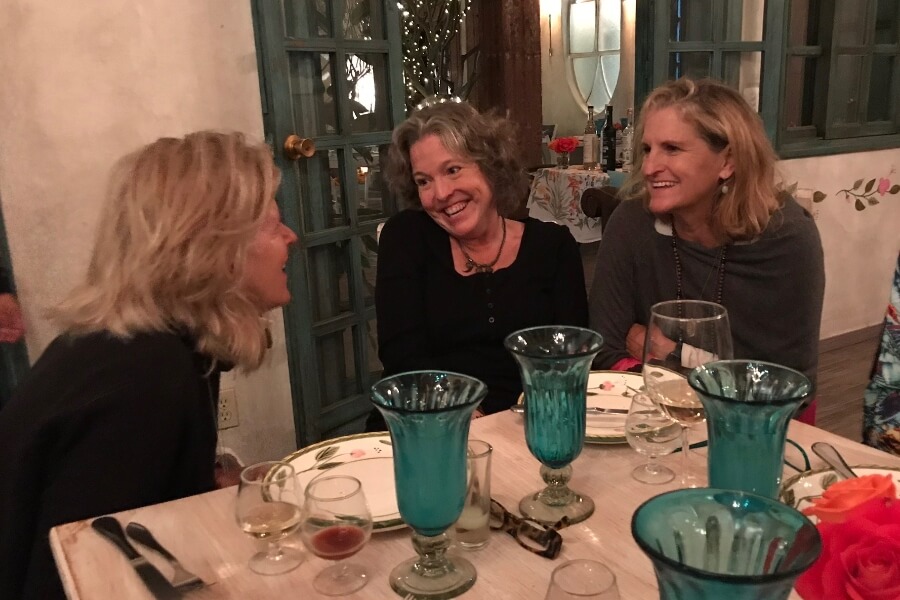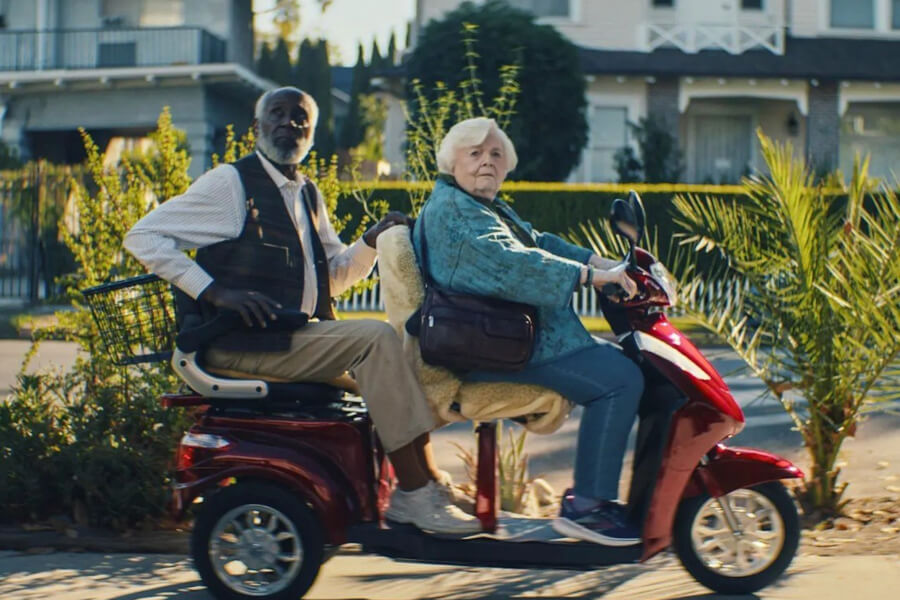A couple of weeks ago, I found myself staring at an evite to a social event. I had my cursor hovering over “Accept,” even though I knew I didn’t want to go. I was already dreading the awkward small talk and wondering what time I could manage to leave without being considered impolite.
Boom: Out of nowhere, it occurred to me that I could say no. I didn’t have to make any excuse, there would be plenty of other people at the event to fill the room, and no one was going to miss me. Plus, I reminded myself, I didn’t want to go, which should have been enough in and of itself. I clicked “Decline,” or whatever negative choice the evite gave me, and that was it.
I didn’t have to go. I didn’t have to explain. I felt as if I had won the lottery. No nervous chit-chat, a free evening to myself, and at least one point for me on the learning-to-say-no scale.
Read more: What to Expect to See (and Feel) at Your High School Reunion
My Path to Being a “People Pleaser”
Growing up, I got lots of credit for “being nice,” for always being willing to help, and for essentially thinking of others before myself. Saying “no” or simply not wanting to do something? That was certainly frowned upon.
When I was a kid, my mother used to make up stories and excuses about why we couldn’t turn up for something she clearly just didn’t want to attend. It wasn’t until I was an adult and a friend of mine heard my mom concocting one of these elaborate made-up plans that I realized there was another possible way to respond.
When I was a kid, my mother used to make up stories and excuses when she simply didn’t want to attend an event.
“Why don’t you just say you won’t be able to make it?” my friend suggested to my mom, as if telling the truth was that simple. I know that had simply never occurred to my mother. In our 1950s home, you always needed to supply a good excuse if I declined an invitation, one that would make you still seem like a dutiful friend and respectable person.
Boundary-Setting for Beginners
In college, my behavior got me teased by my more independent friends who couldn’t imagine doing something they didn’t really want to do. But I felt exactly the same way about them and their ability to say no just because they would rather not go! I wondered how on earth they could just nonchalantly decline an invitation simply because they wanted to stay home and relax. Doesn’t everyone want to stay home and relax? Why didn’t they feel compelled to make everyone in the world happy the way I do?
That was probably around the time that someone first explained boundary-setting to me. And boy, did I go overboard setting them. I admit, I went through a phase when I used the word “no” like a hammer, to protect myself from some unknown experience I was too nervous to try or from my time being used or wasted by someone else’s needs. I wasn’t comfortable enough with myself to just gently decline. I was certain that if I didn’t say “no” strongly and persuasively enough, I’d be easily talked out of my decision.
Learning to Love “No”
When I was teaching for many years, I always used paper grading as an out. Now that I’m retired and kinder to myself about declining invitations, I often just laugh and say truthfully, “I’m too lazy.”
Today, I often just laugh and say truthfully, “I’m too lazy.”
With age, I’m not nearly as concerned with what people think of me as I used to be. I still occasionally worry that if I say no to some invitation, I’ll look ungrateful. Yes, sometimes I may feel guilty for not being the true blue friend who’s always there to lend a hand. But I remind myself that this person knows lots of other people they can call on.
I also recognize that I have every right to focus on my own hobbies and interests. That helps keep me from becoming a “yes woman.” Happily ensconced in a project of my own, I rarely say “yes” to something I don’t really want to do. Having time to myself is something I treasure. If I’m lying on my couch reading the latest Anne Lamott book or even working on the Sunday New York Times crossword puzzle, it really is empowering to just be in my own world without an obligation to someone else.
Know When to Wait
One technique that really helps me is to remember that I don’t have to respond immediately to invitations or requests. If someone asks me if I can drive them to the airport or attend a function, I’m learning that it’s completely fine to hit “pause” before I respond.
I’ve come to realize, though, that saying no does not make me mean and uncaring
Sometimes it isn’t even something I’m vehemently opposed to doing. It might just take more time, money, or attention than I have at the moment, and those are completely valid concerns, not to be dismissed. Taking a beat helps me to sort it all out and decide if I’ll feel genuinely happy to say yes or if it feels more like an obligation I’d rather avoid. When I use this approach, it makes the times I do help someone out or join a party (yes, I haven’t completely given those things up) all the more meaningful and rewarding.
Of course, old habits can be hard to shake. My first inclination is to say “yes” to everyone; part of me still wants to be the person who everyone thinks is so nice and helpful. I’ve come to realize, though, that saying no does not make me mean and uncaring. It just makes me a person who doesn’t want to do that particular activity and would maybe prefer doing something else. It’s been a huge relief, of course, to discover that I’ve concocted most of this drama around being the nice girl. Learning this truth makes saying “no” so much easier.
Read more: Finding Peace on My Late Mother’s Dream Pilgrimage





















0 Comments